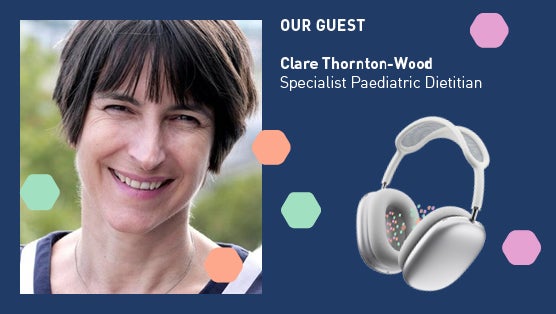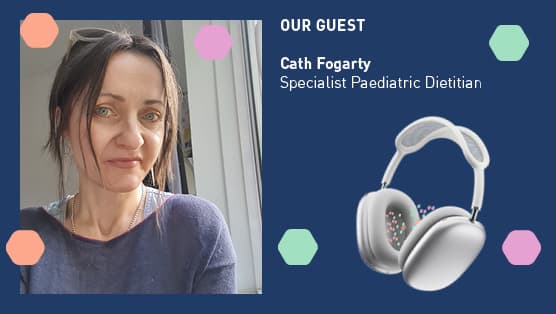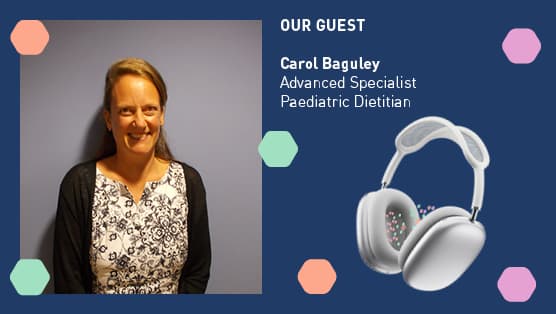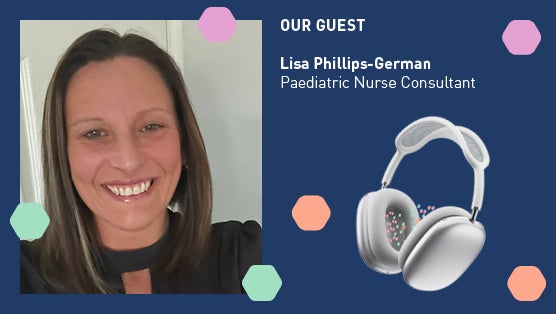Information for Healthcare Professional Use Only
In this episode of the Inside Medical Nutrition podcast, Dr. Linia Patel interviews Claire Thornton-Wood, a paediatric dietitian, about Avoidant Restrictive Food Intake Disorder (ARFID). ARFID is a relatively new diagnosis, recognised in 2013, that encompasses various previous conditions like infantile anorexia and extreme selective eating. It is categorised as an eating disorder, however, unlike other eating disorders, ARFID is not related to body image concerns. Claire emphasises that ARFID is a mental health diagnosis with significant physical implications. It affects both children and adults, with a possible family link.
Claire explains that ARFID is characterised by a pattern of avoiding certain foods or food groups, restricting quantities, and not being influenced by body image. The United States Diagnostic and Statistical Manual of Mental Disorders (DSM) criteria include persistent failure to meet nutritional needs, leading to weight loss, nutritional deficiencies, dependence on feeding tubes or supplements, and interference with psychosocial functioning.
Predisposing factors include choking episodes, medical conditions causing gagging, tube feeding history, and aversive experiences with medication. The longevity and severity of symptoms of ARFID differentiate this condition from picky eating.
Diagnosis of ARFID can be made in both adults and children, with ARFID in children being diagnosed as early as 2 years. The journey to diagnosis can be significant for some children.
The impact on families is substantial, causing anxiety about nutrition, social difficulties, and challenges in school. Management involves ensuring nutritional safety, reassurance, and addressing weight concerns. Dietitians may recommend vitamin and mineral supplements, oral nutritional supplements, and fortified foods. In severe cases, tube feeding may be necessary.
The end goal is a happy, healthy child and family, with minimal impact on their lives and reduced anxiety. Claire advises healthcare professionals to be alert to ARFID, curious about it, and encouraged by the growing awareness and training in this area. Listeners can find more information on the DSM criteria online, the British Dietetic Association website, and the Nestle N+ Hub.
To learn more about the diagnosis and management of ARFID in paediatrics listen to the full episode.
Listen to our other episodes of the Inside Medical Nutrition podcast on a range of clinical nutrition topics.
Podcasts
Listen: What is ARFID Eating Disorder - Types; Symptoms & Treatment with paediatric dietitian Claire Thornton-Wood

<
>
0:00
31:00
Published on:
-
-
Participants
 Claire Thornton-Wood
Claire Thornton-Wood
Download this podcast
Download











Register now to share your review.